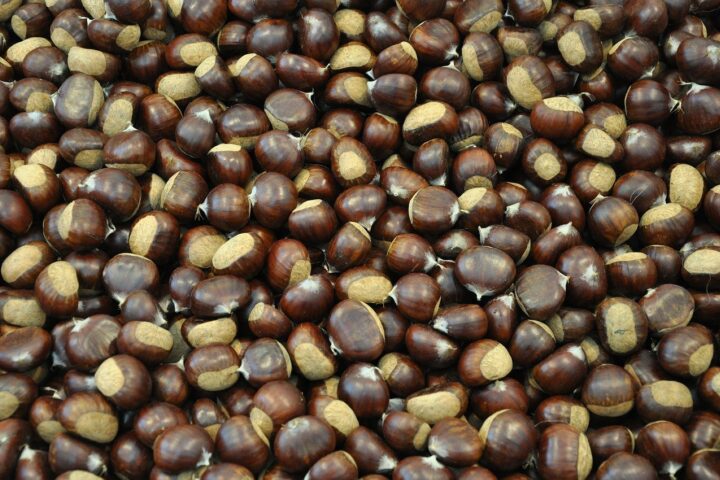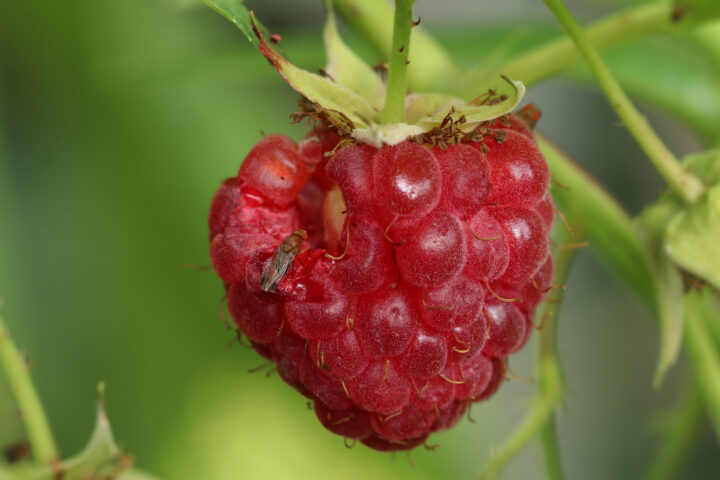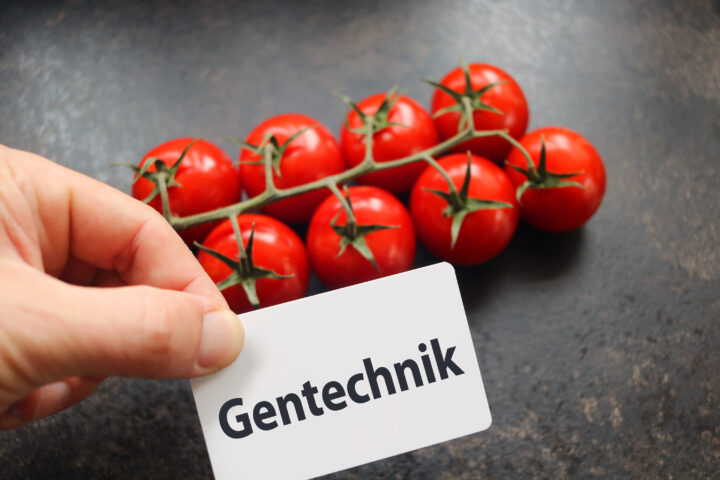
Pests increasingly threaten fruit, berry and grape harvests
Fruit, berry and wine growing is increasingly threatened by pests such as the Japanese beetle, the spotted wing drosophila and the Mediterranean fruit fly. Producers are sounding the alarm – but there is a lack of pesticides that can put an end to the pests.
Wednesday, February 14, 2024
Fruit and berry producers are under great pressure from the large number of pests. Both old and new pests are causing problems for farmers, as can be seen from several articles in the Swiss magazine for fruit and viticulture. Their fruit or berries are a favourite target for the small parasites, which can cause quite a lot of damage.
The use of plant protection products could prevent the damage caused by the pests. The problem? Plant protection products are in short supply everywhere.
Fruit association calls for emergency authorisations
The example of the marmorated stink bug shows that the spread of the pests has fatal consequences for the harvest of fruit and berry producers and that only plant protection products can put an end to them.
The pest, which was introduced to Switzerland in 2004, had spread over the years to such an extent that the federal government had to issue temporary emergency authorisations for various plant protection products in 2020 at the request of the fruit association in order to combat the pest. The «BauernZeitung», among others, reported on this. In the meantime, the marmorated stink bug can be kept well under control thanks to its natural antagonist, the Asian ichneumon wasp, which the Federal Office for the Environment (FOEN) has authorised as a neozoan. It is to be hoped that the benefits of the wasp in the control of stink bugs that have now been established will remain a long-term success without any undesirable side effects.
Agroscope, the federal centre of excellence for research in the agriculture and food sector, was granted approval for the field trial to control the bug. However, the trial could have backfired. Beneficial insects that are not native to this country can cause just as much damage as pests that are at home here. The Asian ladybird, which was originally introduced to control aphids, is a prime example of this. The invader makes wine inedible and threatens the native ladybird. This makes the Asian ladybird one of the invasive species that, according to the UN World Biodiversity Council, is a major contributor to species extinction.
Spotted leaf miner and Mediterranean fruit fly on the rise
While fruit and berry producers were recently still worried about the marmorated stink bug, the Japanese beetle is now on the rise. It was first discovered in Switzerland in July 2023 and has been spreading ever since. The pest should not be taken lightly: It can infest over 400 host plants. An emergency authorisation was required, partly due to the rapid spread of pests such as the Japanese beetle, against which no authorised plant protection products are available. These have become more frequent recently.
The spotted wing drosophila and the Mediterranean fruit fly are also problematic. If heavily infested, the spotted wing drosophila can lead to the defoliation of entire fruit trees – even before the harvest: «The moth can form two to three generations per year, with the eggs being laid on the underside of the leaf and the larvae developing in the leaf,» said David Szalatnay from the fruit specialist centre at Strickhof in Zurich at this year's plant protection conference organised by the Zurich Fruit Association. The spotted wing drosophila can also be controlled in a targeted and beneficial way with plant protection.
The Mediterranean fruit fly is another pest that is increasingly keeping farmers on their toes. It lays its eggs under the skin of ripening fruit. It is particularly problematic that egg laying is often overlooked during the harvest. A special feature of the fruit fly larvae is that they can jump up to 16 centimetres. As the Mediterranean fruit fly is an important pest in countries where citrus fruits are grown, the beneficial insect is persistent in Switzerland and appears here again and again. In this case, too, there is no plant protection product authorised in Switzerland to control the Mediterranean fruit fly.
Kindly note:
We, a non-native editorial team value clear and faultless communication. At times we have to prioritize speed over perfection, utilizing tools, that are still learning.
We are deepL sorry for any observed stylistic or spelling errors.
Related articles

Invasive species threaten native plants
The economic interdependence of the world has increased greatly over the past years and decades. Due to the brisk trade activity between the continents, invasive plant and animal species are also spreading faster and faster. This can lead to serious problems for native vegetation and agriculture. According to the FOEN, the canton of Ticino is particularly affected.

Invasive pests travel with us
Invasive pests and plant diseases are among the greatest challenges for biodiversity and agriculture. They often enter Switzerland via travel and imported goods and cause great damage to cultivated and wild plants. Since 2020, the import of plants from non-EU countries is prohibited. However, introduced pests are a worldwide problem.

Because plants need protection from pests and diseases
The health of our crops cannot be taken for granted. On the contrary: in our mobile world, pests and plant diseases are spreading like wildfire. Climate change acts as an accelerant. When pests migrate and new plant diseases establish themselves in our latitudes, they can become a threat to native species. The International Plant Health Day on 12 May is a reminder of this. And the day shows: to ensure plant health in the future, research and innovation are needed above all.

ARTE documentary: Genetic engineering in organic farming?
The ARTE documentary “Genetic engineering in organic farming?” examines key controversial questions of modern agriculture: Is the general exclusion of new breeding technologies still up to date? Can the resistance of organic farming be justified scientifically?

The Great Suffering of Farmers
Fire blight, Japanese beetles, or grapevine yellows – farmers in Valais, too, are increasingly feeling helpless in the face of the threats posed by nature. More and more often, they lack the means to effectively protect their crops. This makes it all the more important for the Federal Council to place a pragmatic balancing of interests at the forefront when setting threshold values.

'Tomatoes on your eyes'
The submitted “Food Protection Initiative” calls for “GMO-free food.” Leaving aside this illusory demand, its adoption would mean more bureaucracy, more trade barriers, and less innovation. The Swiss Farmers’ Union describes the proposal as “unnecessary” and warns of a setback to the goal of achieving an even more sustainable agriculture.

How our daily lives end up in the water
When residues in our waters are discussed, agriculture is often portrayed as the main culprit. Yet a closer look shows that the sources are diverse and often much closer to everyday life than assumed.

